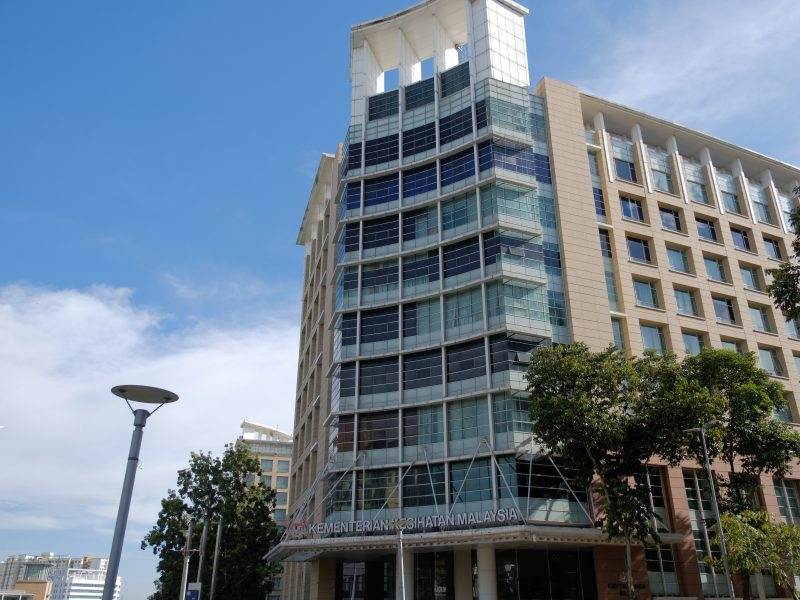In an earlier article I posited that there was no compelling case to immunize all children below 12 years except those who had a pre-existing health condition. [1]
This time round I would like to take to task the experts in JKJAV who have counseled the minister to withhold the immunization of children between the ages of 12-17 years because of the risk of myocarditis.
“The reason is that, based on reports of side effects in the US, there were incidents of myocarditis or heart inflammation, in as many as 40 cases per one million doses of the Pfizer-BioNTech vaccine that was administered to males aged 12 to 29.” [2]
This wait and see attitude is diametrically opposite to the position of the JKJAV when they extricated the AstraZeneca vaccine from the National Immunization Program and rolled out the AstraZeneca vaccine like a lottery.
Then, in May 2021, I asked,
“How does the MOH and JKJAV scientifically and ethically justify the AstraZeneca vaccine to young adults from 18-30 years old, considering that the UK with the largest and widest experience with it’s homegrown University of Oxford vaccine has advised otherwise?
With access to probably the largest data-set for the AstraZeneca vaccine rollout, the UK Joint Committee on Vaccination and Immunization (JCVI), recommended,
“based on available data and evidence, it was preferable for adults aged under 30 with no underlying conditions to be offered an alternative to the AstraZeneca vaccine where available” [3]
The JCVI has since raised the age to 40 whilst most of the countries in the European Union has raised the minimum age for the AstraZeneca vaccine to 50 because of the increased risk of blood clots in the brain, also known as Thrombocytopenia Thrombocytosis Syndrome (TTS).
Many countries have now immunized their first dose AstraZeneca patients with a second dose of mRNA vaccine, in an effort to avert the Thrombocytopenia Thrombocytosis Syndrome, whilst the JKJAV is still stuck with the Wait and See Syndrome. [4]
This heterologous vaccine booster regimen has conferred the vaccinee with a much better immune response which is now especially critical in the face of the onslaught by the extremely virulent Delta variant. [5]
In contrast to the severe nature of TTS, as a rare adverse effect of the AstraZeneca vaccine, the young people who develop myocarditis from the mRNA vaccine, mostly experience a mild illness and virtually all of them recover spontaneously or with minimal treatment. No deaths has thus far been reported. This contrasts with the 20% reported mortality rates from the vaccine induced TTS, days spent in the ICU, the acute and chronic sequelae of organ injury and the monumental costs involved [6,7]
At the point of writing, my nephrology and ICU colleagues are struggling with a 32 year old who developed TTS 2 weeks following her AstraZeneca vaccine. She is presently on dialysis, plasmapheresis, steroids and Intravenous Immunoglobulins (IVIG). Fortunately, she appears to be recovering, except for her injured kidneys. The nephrology group have been sharing many similar cases of vaccine induced TTS.
The experts in the JKJAV, are surely aware that the risk of getting myocarditis and pericarditis are much more common if the adolescent is infected with the coronavirus and the complications suffered by the heart from the viral infection can be much more severe. And also the risk of acquiring Multisystem Inflammatory Syndrome in Children (MIS-C), Long COVID), hospitalizations and death.
Since the JKJAV and the MOH do not provide any local data except to quote the US, I am left with no choice but to similarly extrapolate from the CDC data too. Virtually all of the cases of myocarditis and pericarditis occurred within 1 week of the second dose of the mRNA vaccine.
The risk of myocarditis and pericarditis in 12-17 year old boys from SARS-CoV-2 is estimated to occur at 876 per million (Wilson Score Interval 402-1911). This is 13 times more than the risk of them developing it from the mRNA vaccines (67 per million). [8]
For 12-17 year old girls, the risk of developing myocarditis and pericarditis from the primary COVID-19 infection is 213 per million (73-627). This is 24 fold the risk of getting it from the mRNA vaccines (9 per million).
I think the figures speak for themselves. The benefits of vaccinating our 12-17 year old boys and girls far outweigh the risks of myocarditis and pericarditis associated with the mRNA vaccines. I am sure all my colleagues in pediatrics, family medicine and general practice would be on high alert to pick out the cases, refer and report them promptly to our pediatric cardiologists, the MOH and JKJAV, when the mRNA vaccine is allowed in this 12-17 age group, hopefully earlier rather than later.
References:
- https://drmusanordin.com/2021/06/12/no-compelling-case-for-covid-19-vaccines-in-healthy-children/
- https://www.malaymail.com/news/malaysia/2021/07/28/putrajaya-suspends-covid-19-jabs-for-malaysian-adolescents-after-us-reports/1993387
- https://www.reuters.com/world/uk/britains-medicine-regulator-says-identified-possible-side-effect-2021-04-07/
- https://www.reuters.com/world/middle-east/countries-weigh-mix-match-covid-19-vaccines-2021-05-24/
- https://drmusanordin.com/2021/07/17/targeted-vaccination-strategy-in-the-klang-valley-negeri-sembilan-and-labuan-to-overcome-the-variants-of-concern/
- https://www.aappublications.org/news/2021/06/23/acip-covid-vaccination-myocarditis-062321
- https://post.parliament.uk/covid-19-vaccines-safety-and-blood-clots/
- https://www.medrxiv.org/content/10.1101/2021.07.23.21260998v1
Dr Musa Mohd Nordin
30 July 2021



